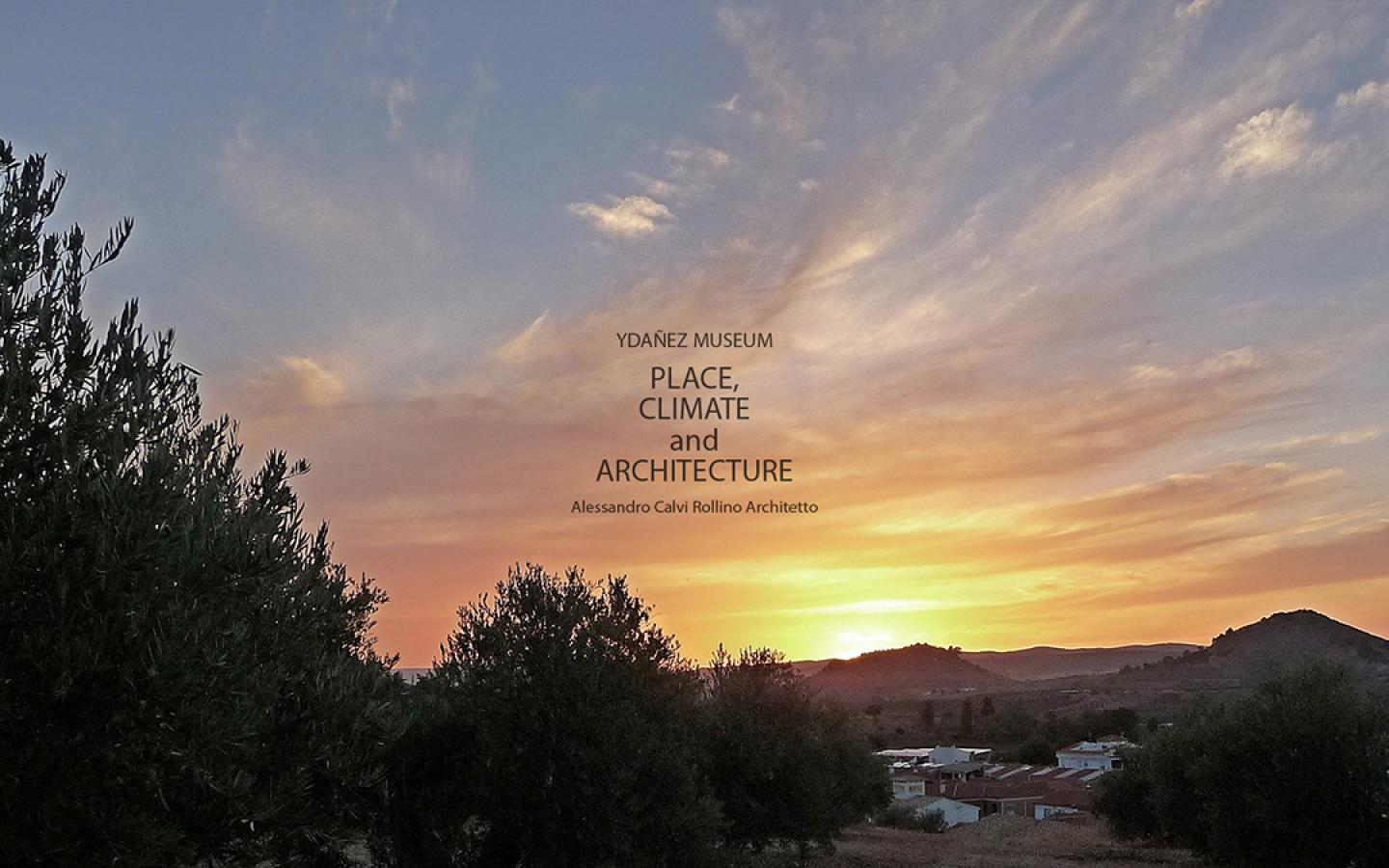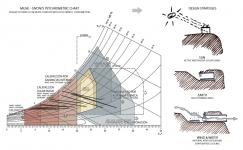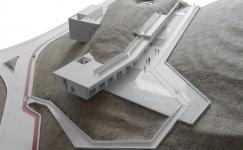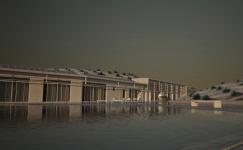Architecture should make use of natural renewable resources to offer an healthy and accessible built environment reducing the use of mechanical systems for cooling and heating. Architecture should also consider the physical features of a place and be able to improve or make people evident the existing qualities or atmospheres in which Architecture is going to be set in. That’s the mission for the design of the Ydañez Museum in Puente de Génave (Spain). We analyzed the local climate data ( solar exposition and radiation, temperature, amount of rain, wind, humidity etc.) by means of Olgyay’s and Milne-Givoni’s bioclimatic and psychrometric charts defining the orientation of the building according to the solar and winds paths and using all of the possible environmental passive energetic gains. The four natural elements Sun, Wind, Earth, and Water have a direct impact on Architecture improving energetic savings both in winter and summertime. Technological, economic and environmental issues coexist; Place, Climate and Architecture represent the unity of Men and Nature.
The building and the hill are modeled according to three axes: the “Wind-Axis” to allow summer breeze let in, the “Sun-Axis” following the sun path and the “History-Axis” directed to the historical part of the town. The distribution of the rooms and connections inside the building is so simple and functional that it is possible the parallel progress of the different activities related to the exposition, production or maintenance of the Work of Arts. Most of the indoor spaces have a direct visual link with the hill landscape absorbing the typical atmosphere of the place while the rooms dedicated to the exposition of the works by the local artist Santiago Ydañez, have an intimate character: from the luminous hall a stair alongside a slope made of the same earth of the hill, takes you to a darker space of shadows and meditation.
2010
Main Structure: Reinforced Concrete
Design Architect:
Alessandro Rollino
Collaborators:
Sandro Panarese, Micaela Tolio, Maria Greco










